Predicting farmers’ uptake of spineless cactus in the Arabian Peninsula: a case study of Qatar

Authors:
This study aims to determine the expected level and time to peak at the maximum
level of adoption of spineless cactus (SC) technology introduced in the State of Qatar, to
investigate the factors influencing adoption of this technology, and to identify the main
constraints affecting its wide adoption with particular focus on perceived perceptions
of the research and extension (R&E) delivery systems on the potential expected
benefits of this innovation. Two sets of methodologies have been used: the first
approach dealt with the adoption and diffusion outcome prediction tool (ADOPT). The
second approach consists of using the Likert-scale approach, which measures the
attitude and perception of researchers and extension agents, rating the degree to which
they agree or disagree with the defined characteristics of this technology. The data were
gathered using semi-structured surveys targeting researchers and extension agents
and focus groups discussions (FGDs) conducted with farmers adopting the SC
technology. The empirical findings revealed a predicted adoption level in five and ten
years from the starting period on adopting this technology is 80 and 90%, respectively.
The analysis suggests many factors contribute to constraining the peak and the time to
reach this peak level of adoption, such as farmers’ profit, environmental, and risk
orientations, and its ecological and profit advantages. The study outcome also reveals
a positive perception of this technology’s characteristics and potential profitability
from the national researchers and extension agents, influencing its diffusion and
adoption. The influence of characteristics of the technology proved to be essential for farmers’ decision-making on adopting this technology. Establishing the technology characteristics relationship, potential profitability, and adoption will allow decision makers and planners in R&E to determine and target which characteristics of new technology led to their easy transfer and diffusion among the Qatari farmers.
